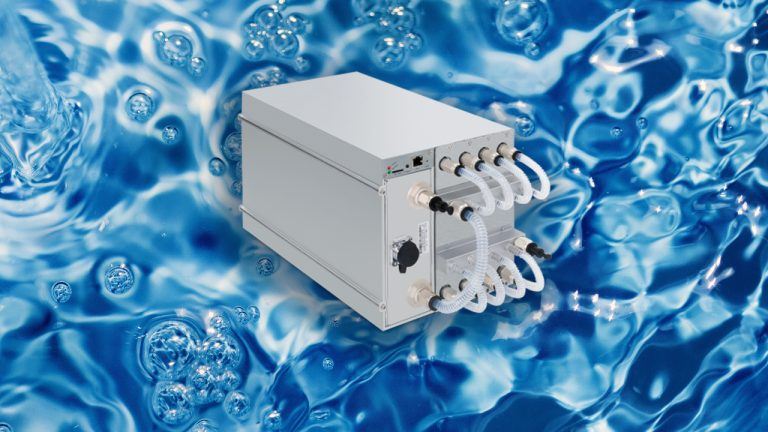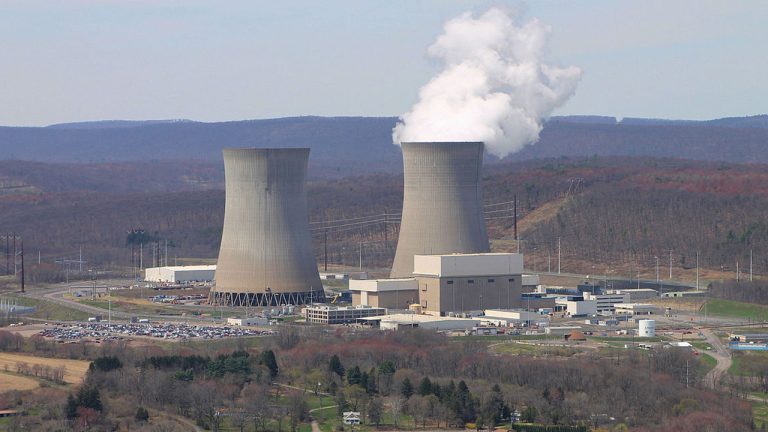 Bitcoin miners are finally catching a break after a sluggish September, with hashprice climbing 10.33% in the past 30 days. A solid 8.93% of that bump came within the last four days alone. Hashprice Jumps Nearly 9% in 4 Days: Bitcoin Miners Catch a Break as September Nears End On Aug. 29, 2024, mining revenues […]
Bitcoin miners are finally catching a break after a sluggish September, with hashprice climbing 10.33% in the past 30 days. A solid 8.93% of that bump came within the last four days alone. Hashprice Jumps Nearly 9% in 4 Days: Bitcoin Miners Catch a Break as September Nears End On Aug. 29, 2024, mining revenues […] In July, bitcoin miners earned $951.11 million, marking the lowest monthly revenue of the year. Out of this total, $24.9 million was generated from transaction fees, reflecting a trend of low onchain fees. July Bitcoin Mining Revenue Plummets to a 2024 Low The month was particularly challenging for bitcoin miners, as earnings hit their lowest […]
In July, bitcoin miners earned $951.11 million, marking the lowest monthly revenue of the year. Out of this total, $24.9 million was generated from transaction fees, reflecting a trend of low onchain fees. July Bitcoin Mining Revenue Plummets to a 2024 Low The month was particularly challenging for bitcoin miners, as earnings hit their lowest […] Now that the halving has occurred and fees are at a six-month low, the profitability of application-specific integrated circuit (ASIC) mining rigs has shifted significantly. It is now essential to ensure electricity is inexpensive and machines are efficient in terms of joules per terahash. The following is an examination of today’s top six ASIC miners […]
Now that the halving has occurred and fees are at a six-month low, the profitability of application-specific integrated circuit (ASIC) mining rigs has shifted significantly. It is now essential to ensure electricity is inexpensive and machines are efficient in terms of joules per terahash. The following is an examination of today’s top six ASIC miners […] Terawulf, a bitcoin mining operation, has announced that it has energized the first nuclear-powered bitcoin mining facility in the United States at the company’s Nautilus Facility in Pennsylvania. According to the company, approximately 1 exahash per second (EH/s) or close to 8,000 application-specific integrated circuit (ASIC) bitcoin miners are now online, and another 8,000 mining […]
Terawulf, a bitcoin mining operation, has announced that it has energized the first nuclear-powered bitcoin mining facility in the United States at the company’s Nautilus Facility in Pennsylvania. According to the company, approximately 1 exahash per second (EH/s) or close to 8,000 application-specific integrated circuit (ASIC) bitcoin miners are now online, and another 8,000 mining […]
Steve Bassi said that a long-term holder may do well mining in the short run and then selling when the block reward goes down in 2024.
From the great migration to the bear market, crypto miners went through many challenges throughout the year including a shift in profitability. However, according to Steve Bassi, an expert in Bitcoin (BTC) and Ether (ETH) mining, crypto mining may still be profitable if we look at its long-term prospects.
As the costs of application-specific integrated circuit (ASIC) miners hover around $8,000 to $12,000 and electricity costs take up more than half of the projected income, the current estimated time frame when a miner could cover the cost of one device is five to six years. Commenting on the topic, Bassi said that while mining income certainly looks bleak in the short run, it will change as time goes by. He said:
“In the long run, we're expecting another BTC halving in 2024. So, a long-term holder could do well mining in the short term and perhaps selling when block reward goes down in 2024.”
If prices don't change in the coming years, things can go sour for miners as the devices are not designed to last that long. Bassi noted that mining hardware depreciates in three to five years, with some parts needing complete replacement. “Out to 60 months on these devices, operators have a good chance that they're going to have to replace a power supply or fan in a significant portion of these devices,” said Bassi.
Despite this, the mining expert praised the water cooling aspects of the newer Antminer devices. According to Bassi, if this standard stays, cooling will be more efficient and only miners who are already planning for liquid cooling will be competitive.
Related: Bitcoin miners sell their hodlings, and ASIC prices keep dropping — What’s next for the industry?
Earlier this month, JPMorgan strategists mentioned that the costs of producing BTC have dropped from $24,000 to $13,000 at the start of June. This number is the lowest since September of last year. While the lower production costs may ease selling pressure from miners, some still perceive it to have a negative effect on asset prices.

The facility owner Dynamics Mining publicly took to Twitter to share the letter terminating its hosting agreement with Compass Mining, saying it had unpaid bills.
Bitcoin (BTC) mining hardware and hosting company Compass Mining has lost one of its Maine-based hosting facilities after the owner, Dynamics Mining, terminated the hosting agreement between the two, claiming Compass failed to pay the required bills.
Dynamics posted on Twitter late on June 26 a letter it sent to Compass Mining which stated as of June 14th, the hosting contract between the two was terminated. Dynamics alleged Compass has six late payments and three non-payments related to utility bills and hosting fees.
Effective June 14th @compass_mining facility hosting agreement in Maine was terminated by @dynamics2k for failure to pay power consumption charges. 6 late payment and 3 non payments. @MiningScandals pic.twitter.com/cSfnWMmqTY
— DynamicsMining (@DynamicsMining) June 27, 2022
In a follow-up tweet a few hours later, on June 27, Dynamics alleged the power consumption bills totaled $1.2 million, and Compass had only paid around $665,000. It said Compass claims to have given the money required for the bills, but Dynamics alleged it was used to build other facilities instead.
Cointelegraph contacted both Dynamics Mining and Compass Mining for comment but did not receive a response from either by publication time.
The very public situation caused Compass Mining CEO Whit Gibbs to say it would “fight this battle in court, not on Twitter.”
But the individual behind the Dynamics account hit back at Gibbs, saying all Compass had to do “was pay $250k for three months of power consumption” and that “Twitter is the voice of your customer base, not the courtroom.”
@compass_mining all you had to was pay $250k for 3 months of power consumption. Since you don't give your clients their Serial Numbers I couldn't even help them. Twitter is the voice of your customer base, not the courtroom. ✌ https://t.co/BihbrpuAmk
— DynamicsMining (@DynamicsMining) June 27, 2022
Compass Mining sells Application Specific Integrated Circuit (ASIC) miners, specialized cryptocurrency mining devices, which come with an option to be hosted in its facilities located across the United States and Canada. It is unknown what will happen to customer miners located at the facility.
Compass states that in the event of an emergency, it may “rearrange, remove, or relocate Customer Hardware without any liability to Compass” as per its hosting agreement.
Related: The Bitcoin shitcoin machine: Mining BTC with biogas
The terms also see customers “waive their rights to seek remedies in court” or be involved in any Class Action lawsuits, and any proceedings must be bought forward by each individual customer if they were to file a lawsuit against Compass.
The situation comes when many cryptocurrency miners face a challenging market environment with the continuing price slide of Bitcoin and increasing energy costs.
In mid-June, when Bitcoin fell below $24,000, the profitability of many of the older ASIC miners dropped into the negative zone, and even some of the newer generation mining rigs are near or past their shutdown thresholds based on the price of the asset.
Around the same time, with Bitcoin mining profitability dropping over 75% from the market top, the volume of BTC sent by miners to crypto exchanges reached a seven-month-high on June 15. Several public Bitcoin mining firms sold 100% of their Bitcoin production in May, according to reports.